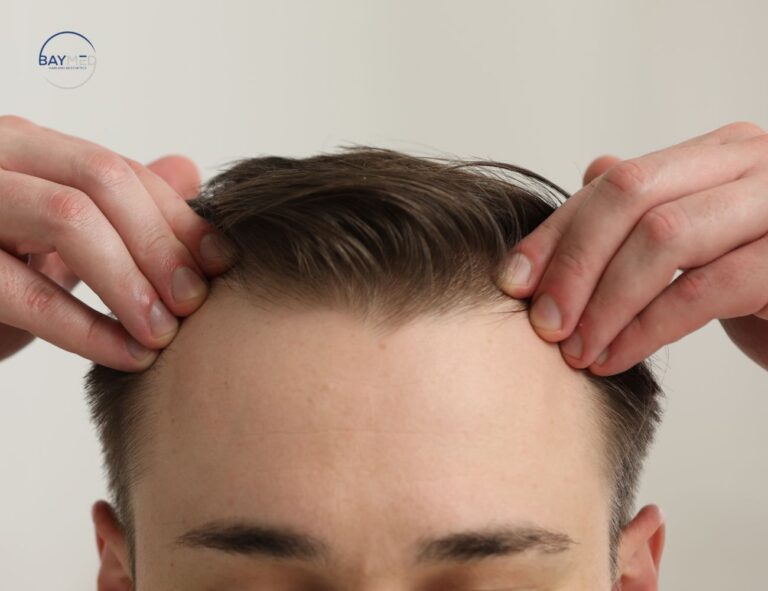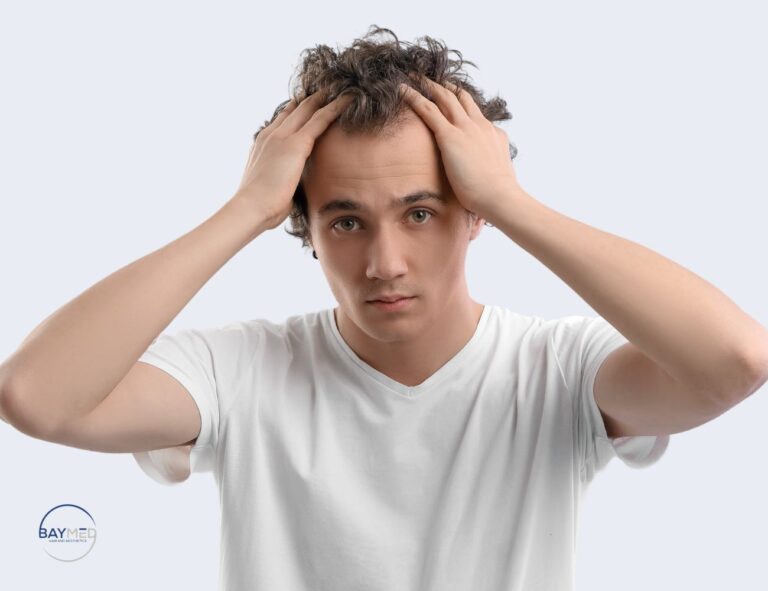You are what you eat. We’ve all heard the adage, but is it true? Does your diet affect your hair loss?
Yes. and absolutely yes.
Many people only concentrate on the calories in their diet, especially when looking for weight loss, but that can be a huge mistake. Not only can it cause hair loss, but a poor diet can create other health issues.
While we are not dietitians here at BayMed Hair and Aesthetics, we are interested in your overall health, and that means helping our patients to choose a diet that doesn’t cause or exacerbate hair loss.
So what do you need to know about diet and hair loss? Let’s start with that caloric count.
What Is Your Diet Lacking If Your Hair Is Falling Out?
Protein, vitamins, and other macros nutrients are the dietary keys to healthy hair.
When people go on highly restrictive diets, such as those following some surgeries or super low-calorie diet plans, they may not get enough protein and other vital nutrients to grow hair. Studies have shown that the physiological stress of severely restrictive diets and low iron can lead to hair loss in women.
Yo-yo dieting and fad diets are the worst contributors, often ignoring people’s basic nutritional needs. If your diet, for example, eliminates all fruits and vegetables, your body will need to replace the vitamins usually supplied by fruits and vegetables. Sometimes a multivitamin can help, but any diet restricting an entire food class is questionable.
And relying on supplements or eating too many of the wrong foods can also cause problems.
For example, Vitamin A toxicity occurs when people take too much of a supplement or overeat fish liver. Sound weird? But many people ignore what is in their diet supplements until they start causing problems.
Can Diet-Related Hair Loss Be Reversed?
Complicating the diet and hair loss picture, even more is that some foods are considered inflammatory and can trigger autoimmune conditions, like alopecia areata, which causes patchy hair loss.
Even in non-celiacs, gluten sensitivity can lead to hair loss. WebMD points out that elimination diets where you avoid eating specific foods or from certain food groups can help you figure out what foods are triggering your hair loss and avoid eating them. These foods and food groups include
- grains
- legumes
- nightshades (potatoes, tomatoes, and peppers)
- dairy
- eggs
- coffee
- alcohol
- sugar
- oil and
- certain food additives
In the meantime, diets with reasonable amounts of protein and healthy fats can help reduce or even reverse the effects of diet-related hair loss.
BayMed Hair and Aesthetics Can Help Diagnose Your Hair Loss
Is your diet contributing to your hair loss? We can help. The team at BayMed Hair and Aesthetics will help you identify the reason for your hair loss and recommend a plan to improve your hair volume. Call today to learn more about a healthy hair diet.





